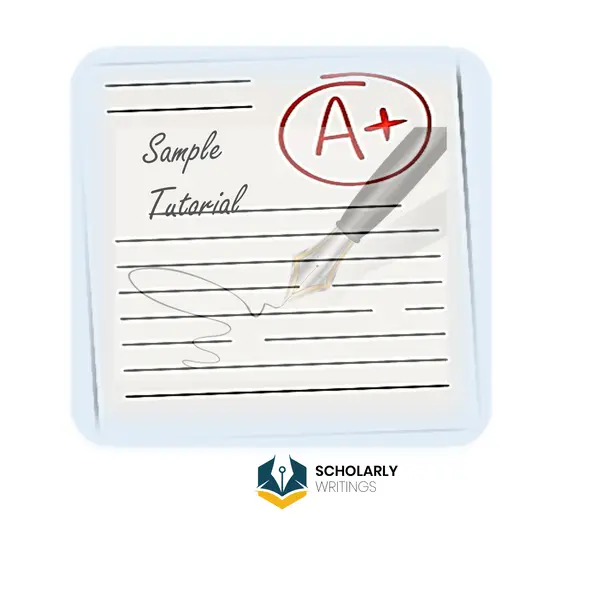No products added!
(Solution) Why Truman Used the Atomic Bomb against Japan, and in the Manner That He Did
Category: US History
$30.00 Original price was: $30.00.$10.00Current price is: $10.00.
Description
Prompt
Why did Truman use the atomic bomb against Japan, and in the manner that he did (without warning, against cities)? What did his decision say about the priorities of American foreign policy?
Paper Format: Chicago/Turabian
Pages: 5
Sources: 5
Keywords
Truman atomic bomb
Atomic bomb against Japan
Decision to use atomic bomb
PLEASE NOTE:
Please only use the following source:
Carr, E.H. What Is History? (Recommended).
Dobbs, Michael. One Minute to Midnight: Kennedy, Khrushchev, and Castro on the Brink of Nuclear War. New York: Vintage, 2009.
Greene, Graham. The Quiet American. Recommended. New York: Penguin Classics, 2004.
Hersey, John. Hiroshima. New York: Vintage, 1989.
Kennan, George F. American Diplomacy. Chicago: University of Chicago Press, 1984.
Kennedy, Robert F. Thirteen Days: A Memoir of the Cuban Missile Crisis. New York: W.W. Norton, 1999.
Lawrence, Mark Atwood. The Vietnam War: A Concise International History. New York: Oxford University Press, 2008.
Merrill, Dennis, and Thomas G. Paterson, eds. Major Problems in American Foreign Relations, Volume II: Since 1914. 7th ed. Boston: Cengage Learning, 2006.
Paterson, Thomas G., J. Garry Clifford, Kenneth J. Hagan, Deborah Kisatsky, and Michael Donoghue. American Foreign Relations: A History, Volume 2: Since 1895. 8th ed. Boston: Cengage Learning, 2009.
Walker, J. Samuel. Prompt and Utter Destruction: Truman and the Use of Atomic Bombs Against Japan. Chapel Hill: University of North Carolina Press, 2004.
Solution
Why Truman Used the Atomic Bomb against Japan, and in the Manner That He Did
Historians raise conflicting scientific, military, and political considerations in attempting to explain reasons that led President Truman to consider bombing Japan with nuclear weapons. The decision was unique as it challenged the scientists advising the president against using the bomb. Scientists and military strategists felt that the use of atomic weapons would have profound and potentially grave global consequences.[1] The committee also feared that using the bomb could severely damage relations between the United States and the Soviet Union. As an alternative, they proposed a non-combat demonstration of the bomb in a desert or on an island, witnessed by international observers.[2]
Nevertheless, President Truman dismissed the committee’s recommendation. At first, he was uncertain, having received conflicting counsel from his chief of staff, secretary of war, Army chief of staff, and secretary of state.[3] These conflicting views fuel debate on why Truman bombed Japan. The decision to drop the atomic bomb continues to attract interest. In deciding to use the nuclear weapon against Japan, Truman’s desire to end the war at the lowest cost of American lives, prevailing emotions about the Japanese, and military momentum significantly drove him to use the bomb.
Moral Ambiguity and Wartime Sentiment
The desperation to end World War II blurred the distinction between inexcusable and permissible acts of war. Truman’s decision to use the atomic bomb against Japan elicited the same sentiments. The decision received widespread attention after Americans realized “the atomic peril to a mass audience.”[4] However, the context in which he decided to use the atomic bomb received little attention. Notably, morality mattered little during the war as the American public largely celebrated military defeats over Japan. Such sentiments paved the way for the use of the atomic bomb.[5] Notably, it is only after using the bomb that its devastating impacts provoked sentiments about the morality behind its use.[6]
During the war, the American public and policymakers ignored moral arguments challenging the use of the atomic bomb. This made it easy for Truman to dismiss scientists’ warnings and concerns against using the bomb. Concerns remain over Truman’s insensitive use of the bomb considering claims that Japan was willing to surrender before the bombings.[7] The widespread attitudes fueled by the war suppressed moral arguments and drove Truman to consider using the atomic bomb.
[1] Dennis Merrill and Thomas Paterson. Major Problems in American Foreign Relations, Vol. II: Since 1914. 7th ed. (Belmont, CA: Cengage Learning, 2010), 188.
[2] Ibid, 188.
[3]J. Samuel Walker. Prompt and Utter Destruction: Truman and the Use of Atomic Bombs Against Japan. (Chapel Hill; London: The Universityof North Carolina Press, 2004), 2.
[4] James Hershberg. James B. Conant: Harvard to Hiroshima and the Making of the Nuclear Age. (New York: Alfred A. Knopf, 1993), 292.
[5] Ibid, 291.
[6] Ibid, 292.
[7] Ibid, 292.
Please click the icon to access the expertly-formatted paper in full.
Be the first to review “(Solution) Why Truman Used the Atomic Bomb against Japan, and in the Manner That He Did” Cancel reply


Reviews
There are no reviews yet.